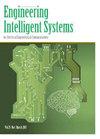Heterogeneous integration architecture for intelligent control systems
Engineering Intelligent Systems for Electrical Engineering and Communications
Pub Date : 1994-12-01
DOI:10.1049/ISE.1994.0016
引用次数: 13
Abstract
Better automation is a key to the improvement of industrial competitiveness. However, in most industrial plants, full automation is not possible because intelligent decisions play an essential part in guaranteeing the success of the production process. The currently favoured solution is to rely on human controllers for intelligent input, although instances of installations with AI-based control do exist. Our belief is that process control problems require the cooperative application of more than one AI technique to be successful, and that the lack of a common framework to support AI-based process control designs has contributed to their relative lack of penetration in the industrial market-place. The HINT Project (ESPRIT E6447) has been created to address this perceived need. We are engaged in developing a conceptual framework, a software architecture, and a methodology which will together support the integration of different AI techniques to provide solutions to process control problems that require the kind of intelligent supervision that is currently carried out by human operatives.智能控制系统的异构集成体系结构
更好的自动化是提高工业竞争力的关键。然而,在大多数工厂中,完全自动化是不可能的,因为智能决策在保证生产过程的成功方面起着至关重要的作用。目前最受欢迎的解决方案是依靠人工控制器进行智能输入,尽管确实存在基于人工智能控制的安装实例。我们认为,过程控制问题需要多种人工智能技术的合作应用才能成功,并且缺乏支持基于人工智能的过程控制设计的通用框架,导致它们在工业市场中相对缺乏渗透。已经创建了HINT项目(ESPRIT E6447)来解决这个可感知的需求。我们正在开发一个概念框架、一个软件架构和一种方法,它们将共同支持不同的人工智能技术的集成,为需要智能监督的过程控制问题提供解决方案,这些问题目前由人工操作人员执行。
本文章由计算机程序翻译,如有差异,请以英文原文为准。
求助全文
约1分钟内获得全文
求助全文

 求助内容:
求助内容: 应助结果提醒方式:
应助结果提醒方式:


